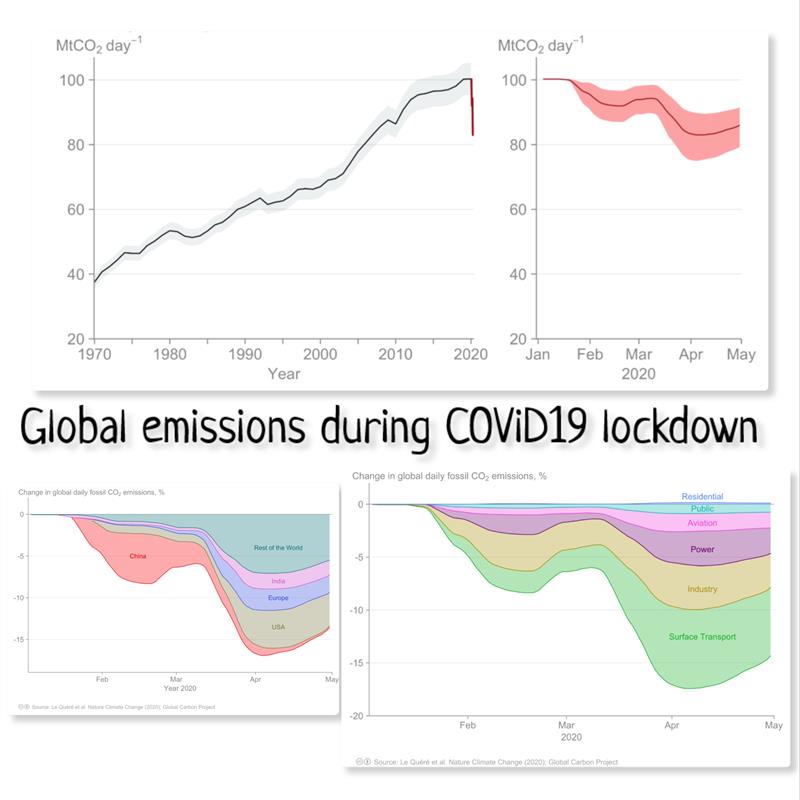
Peak of 17% dropdown of global CO2 emissions during Corona Crisis. Not enough to reach UN 2030 goals of yearly decrease of -7,6%. “We need systemic change through green energy and electric cars, not temporary reductions from enforced behavior.”
The Corona crisis is unfortunately still raging in many countries. Besides all the horrors that this crisis spreads, the effects on global CO2 emissions seem interesting. Future Earth’s Global Carbon Project, an international team of researchers found that daily emissions decreased by 17% – or 17 million tonnes of carbon dioxide – during the peak of the confinement measures in early April, compared to mean daily levels in 2019.
Emissions by sector
Emissions from surface transport, such as car journeys, account for almost half (43%) of the decrease in global emissions during peak confinement on April 7. Emissions from industry and from power together account for a further 43% of the decrease in daily global emissions, while aviation – the economic sector most impacted by the lockdown – only accounts for 10% of the decrease in emissions during the pandemic. Increases in the use of residential buildings from people working at home only marginally offset the drop in emissions from other sectors.
Forecast 2020
In 2020 global CO2 emissions will fall for the first time in over 50 years! Forecasts are around - 4-7%. But this will not even in 2020 reach the levels that would correspond to the UN climate targets, that greenhouse gases must fall by at least 7.6% every year through 2030 to ensure that global warming rates are limited to 1.5.
Professor Rob Jackson of Stanford University, co-author of the analysis summarizes this in a statement that is as brief as it is accurate: “We need systemic change through green energy and electric cars, not temporary reductions from enforced behavior.”
Source: Le Quéré etalii. Nature Climate Change 2020. Global Carbon Project